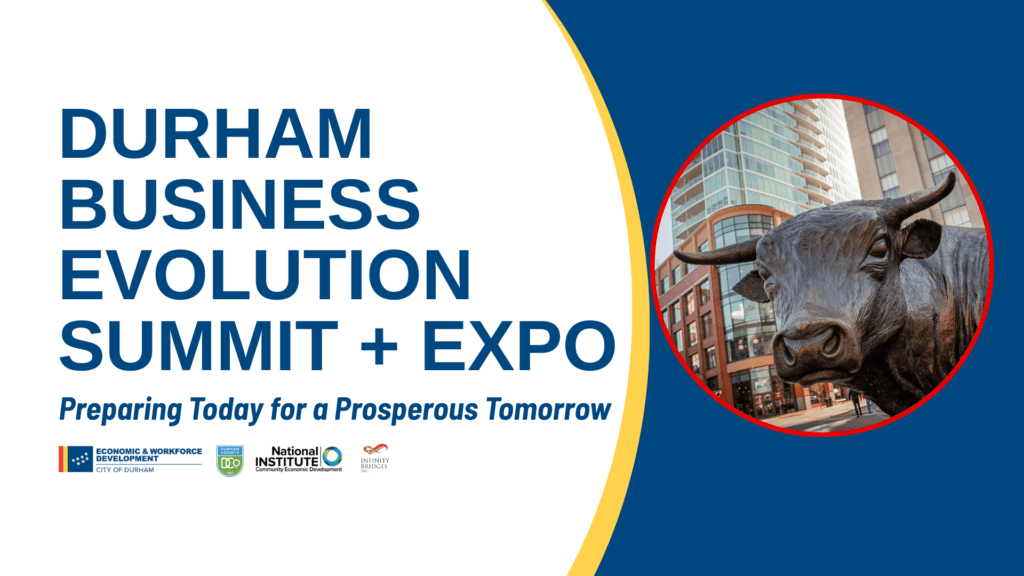
Most of my work involves teaching and facilitating. This week, I took time to learn, reflect, and connect at the Durham Business Evolution Summit + Expo. And I came away feeling inspired and energized.
Here are a few moments that resonated with me:
Defining Success. Among many other insightful comments, Durham Mayor Leonardo Williams said, “You have to define what success looks like. And it’s not necessarily about money.” He then talked about exploring our inner values.
His remarks took me back to core principles. So often, we’re chasing titles, paychecks, or status. And yet, even with those achievements, many people feel burned out, unhappy, or disconnected. What if, instead, we started by naming our values and needs—and then defined success from that place?
I reflected on what success looks like for me. Helping leaders and frontline team members learn new skills that improve collaboration and team functioning. Guiding organizations successfully through hard conversations and conflict. Facilitating meaningful, productive meetings and retreats.
Just this morning, a new client told me that he already feels more comfortable bringing up and discussing hard topics with his team members. That felt like a win.
Navigating Ambiguity. In an energizing keynote, Dr. James H. Johnson, Distinguished Professor at the Kenan-Flagler School of Business, reminded us we’re living in a time of “certain uncertainty.” His advice? Build your capacity to “groove on ambiguity”. He specifically described the need to develop leadership skills like courageous listening, motivational interviewing, thought diversity, and contextual intelligence.
Johnson highlighted the need for continued learning and growth—for ourselves and our teams. The skills he outlined aren’t just buzzwords; they’re essential tools for navigating complexity and change. We need to listen deeply to understand other viewpoints, ask open-ended questions to support engagement and autonomy, welcome and value different perspectives, and maintain situational awareness and flexibility. These skills, among others, improve our resilience, our connectedness, and our ability to thrive during times of uncertainty.
Flying through Turbulence. Michael Landguth, President and CEO of the Raleigh Durham Airport Authority, reflected that sometimes, we have to go through turbulence to reach our destination.
Landguth’s comments reminded me to focus on true north. Growth, change, and leadership aren’t always smooth—especially in times of financial pressure, shifting priorities, or organizational stress. But even in that turbulence, we have choices. We can anchor to our values. We can remain on course. We can name the hard issues and keep working collaboratively toward better outcomes. That’s how strong workplace cultures are built: not in the absence of conflict or challenge, but in how we show up when the road (or sky!) is bumpy.
Conferences like this help me stay grounded in what matters. Here are questions I will continue to consider (and maybe you will, too!):
- What does success look like for you?
- In times of uncertainty, what support and skills do you need—for yourself, your team, or your organization?
- How will you keep flying forward, even in the turbulence?
Let’s keep reflecting, clarifying, and growing as we navigate this journey.

